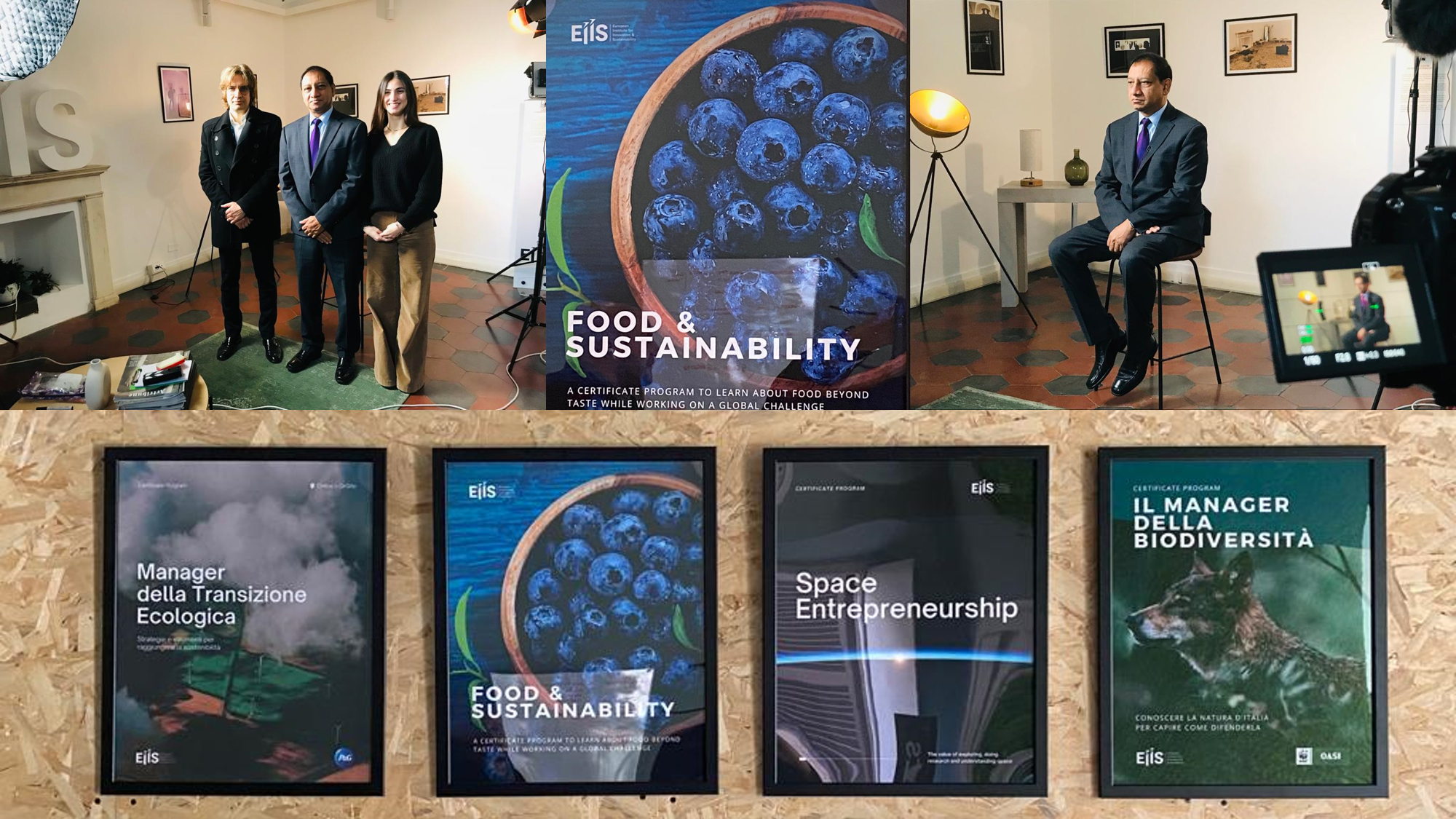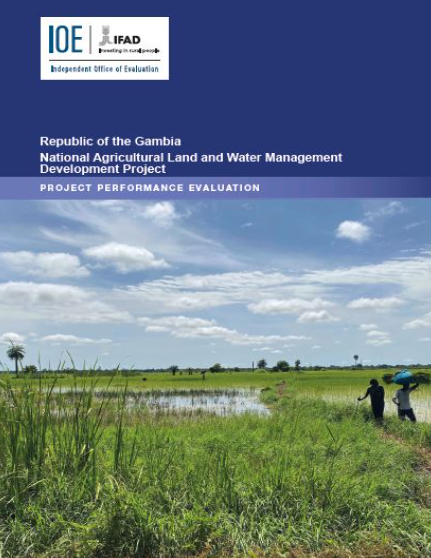Demystifying evaluation through communication and engagement - IOE
Rome, 28 February 2023 – “It’s important to communicate evaluation in a manner that demystifies it. To do so, I am a firm believer that independent evaluation must stimulate dialogue to help programme improvement. For this reason, over the past two years, we have almost doubled the moments of engagement between the Office and the evaluand”. Indran A. Naidoo, Director of the Independent Office of Evaluation of IFAD (IOE) highlighted this nexus between demystifying, communicating and engaging during a video interview, on 28 February 2023.

The video interview is an integral component of the ‘Measuring and Evaluating Food Sustainability’ module of a new a post-graduate certificate programme on ‘Food and Sustainability’. Co-designed by IFAD and the European Institute of Innovation for Sustainability (EIIS), the certificate program is structured to help shape the future leaders of food by providing them with the necessary tools to analyse the food system, understand its complexity and develop solutions to concretely fix it at the company, consumer, and institutional levels. To this extent, the programme covers all the main aspects related to food, from sustainable agriculture to nutritional challenges, food policy, food education and many more. In addition to Dr Naidoo, programme instructors include, among others, Jeffrey Sachs, Director of the Center for Sustainable Development at Columbia University, and Jyotsna Puri, Associate Vice-President of the Strategy and Knowledge Department at IFAD.
“Evaluation tends to create tensions in organizations and people because they feel that it’s a judgement of themselves. What we are trying to communicate is that we are evaluating the programme, and in doing so we want to provide feedback to the implementers so that they are better able to do their work”, noted Dr Naidoo explaining that, for every evaluation, IOE has a series of tailor-made products that allow the Office to reach a vast gamma of audiences, and to keep the conversation going.
IOE ensures that the entire evaluation function at IFAD follows internationally recognized good standards and practices, and reflects the latest methodological breakthroughs. In this context, IOE will test evaluative approaches that draw from the field of neuroscience, working alongside internationally renowned brain scientist, Dr Srini Pillay, in the coming months. Moreover, IOE recognizes that there may be scope for further growing and expanding this use, and to apply it to the field of evaluation. Evidence suggests that doing so would likely help evaluators to better identify the mechanisms that make policies, programmes and interventions work.
“We want to move the culture from evaluation phobia to evaluation love, so that everyone begins to understand that the reason we have rigorous evaluations is to help ensure that IFAD has the highest quality programmes for the benefit of the millions of people whom we serve around the world”, Dr Naidoo concluded.
One of the positive outcomes of independent evaluation is that it promotes good governance, which leads to transparency and accountability. It demonstrates to the world that IFAD is an organization that is not afraid to acknowledge its challenges so that it can work on them. That, in itself, is a factor of confidence.
The EIIS is an academic company that designs innovative solutions for companies, academia, institutions and entrepreneurs to facilitate and foster innovation for sustainability. In EIIS, people connect to reach environmental, social and economic sustainability, through education, research and continuous experimentation.
For further information, please contact Alexander Voccia [here]
RESOURCES
- For more information on the post-graduate certificate programme on ‘Food and Sustainability’, please click here.
CONTACTS

